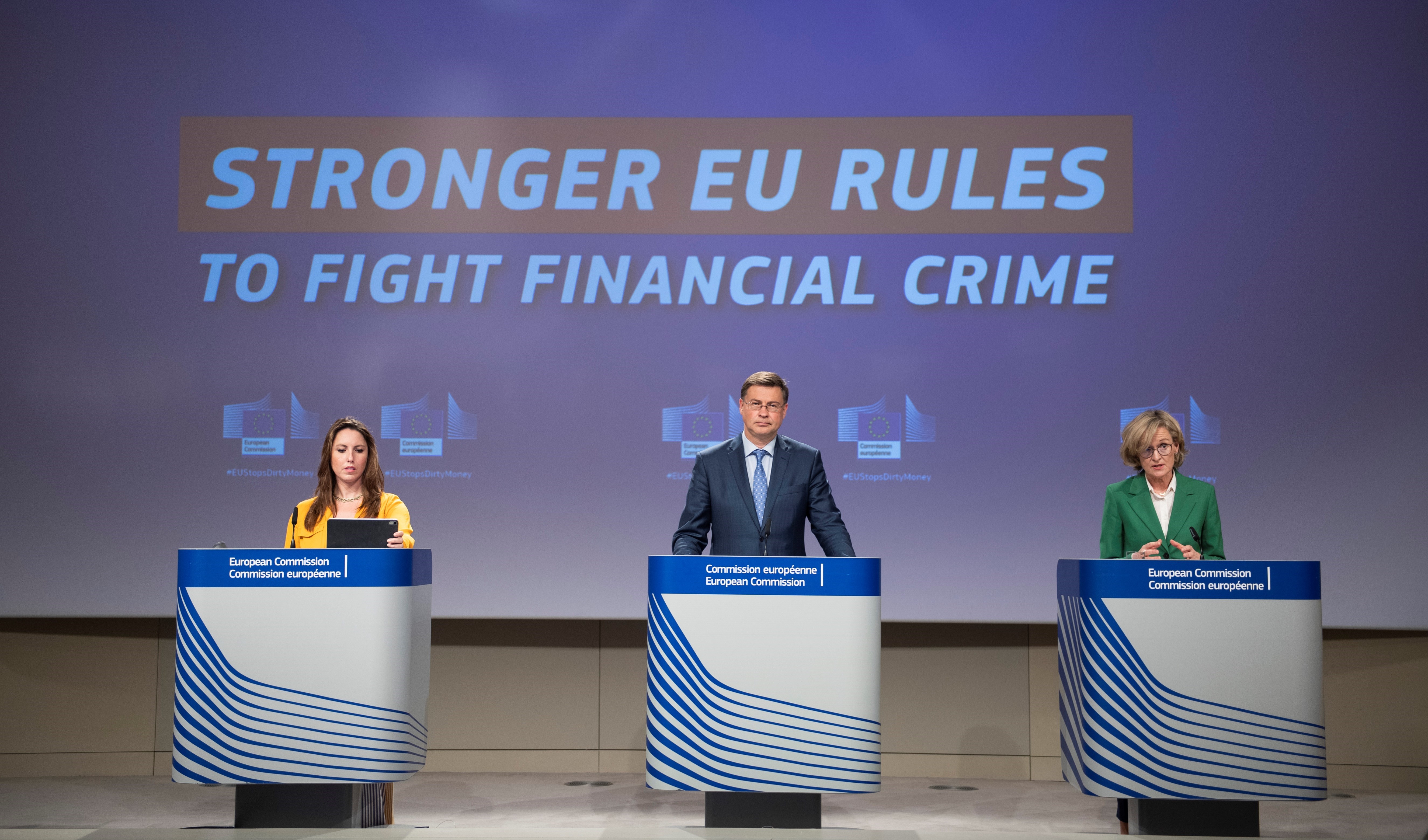European Commission Proposes New Money Laundering Agency
Brussels proposes establishing an anti-money laundering agency in Europe to stop illicit dealings, which would be a factor in stopping Europe attacks.
-

European Commission Proposes New Money Laundering Agency
The European Commission proposed an anti-money laundering agency as part of a series of anti-money laundering reforms. They aim at better combating terrorist financing after several scandals involving banks in the European Union.
This new agency would be charged with supervising and coordinating with national authorities. The commission stated that the goal of AMLA is strengthening rules around money laundering as well as countering terrorist financing.
"Behind dirty money is horrific crimes that harm citizens, so eliminating money laundering means eliminating crime," European Commissioner for Financial Stability, Financial Services and the Capital Markets Union, Mairead McGuinness, said at a press conference.
Money laundering lets criminals hide the illegal origin of their money - crimes that hurt our citizens.
— Mairead McGuinness (@McGuinnessEU) July 20, 2021
So we are getting tough on financial crime.
Today the @EU_Commission adopts measures against money laundering and terrorist financing. pic.twitter.com/UeZjD2Viki
The new agency, which will employ about 250 people, is expected to start operating as of 2024.
Valdis Dombrovskis, the Executive Vice President of the European Commission for an Economy that Works for People, said that the European anti-money laundering laws are among the strictest in the world. However, he also said that they must be enforced consistently and closely monitored to ensure that they are effective.
The EU has done a lot to fight money laundering. We have some of the toughest rules against dirty money.
— Valdis Dombrovskis (@VDombrovskis) July 20, 2021
But there are still some gaps that criminals can exploit.
👉 Today, we are taking action to stop them in their tracks #AML #EUstopsdirtymoney pic.twitter.com/k4NWpsNk6Y
A year ago, Brussels announced its readiness to act following several scandals that exposed the weakness of the fragmented legal system among the 27 member states of the European Union.

 2 Min Read
2 Min Read








